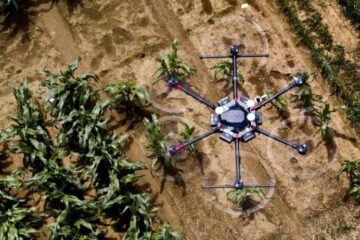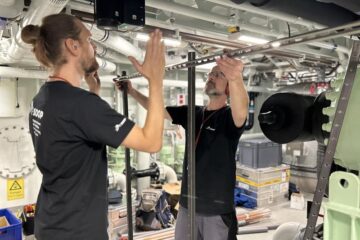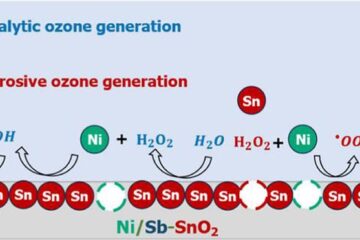Hebrew University researchers demonstrate why DNA breaks down in cancer cells

Now, for the first time, researchers at the Hebrew University of Jerusalem have shown that in early cancer development, cells suffer from insufficient building blocks to support normal DNA replication.
It is possible to halt this by externally supplying the “building blocks,” resulting in reduced DNA damage and significant lower potential of the cells to develop cancerous features. Thus, hopefully, this could one day provide protection against cancer development.
In laboratory work carried out at the Hebrew University, Prof. Batsheva Kerem of the Alexander Silberman Institute of Life Sciences and her Ph.D. student Assaf C. Bester demonstrated that abnormal activation of cellular proliferation driving many different cancer types leads to insufficient levels of the DNA building blocks (nucleotides) required to support normal DNA replication.
Then, using laboratory cultures in which cancerous cells were introduced, the researchers were able to show that through external supply of those DNA building blocks it is possible to reactivate normal DNA synthesis, thus negating the damage caused by the cancerous cells and the cancerous potential. This is the first time that this has been demonstrated anywhere.
This work, documented in a new article in the journal Cell, raises the possibility, say the Hebrew University researchers, for developing new approaches for protection against precancerous development, even possibly creating a kind of treatment to decrease DNA breakage.
For further information:
Jerry Barach, Dept. of Media Relations, the Hebrew University,
Tel: 02-588-2904.
Orit Sulitzeanu, Hebrew University spokesperson, Tel: 054-8820016.
Media Contact
More Information:
http://www.huji.ac.ilAll latest news from the category: Life Sciences and Chemistry
Articles and reports from the Life Sciences and chemistry area deal with applied and basic research into modern biology, chemistry and human medicine.
Valuable information can be found on a range of life sciences fields including bacteriology, biochemistry, bionics, bioinformatics, biophysics, biotechnology, genetics, geobotany, human biology, marine biology, microbiology, molecular biology, cellular biology, zoology, bioinorganic chemistry, microchemistry and environmental chemistry.
Newest articles

AI to Make Crop Production More Sustainable
Drones monitoring fields for weeds and robots targeting and treating crop diseases may sound like science fiction but is actually happening already, at least on some experimental farms. Researchers from…

Cruise Ship as Data Collector
New Approaches in Ocean Observation… Scientific research – not only confined to dedicated research vessels but also from non-scientific vessels and marine infrastructures. This is one of the ideas promoted…

The Clues for Cleaner Water
Pitt, Drexel, and Brookhaven engineers solve the “catalysis vs corrosion” mystery in electrochemical ozone production. Researchers at the University of Pittsburgh and Drexel University in Philadelphia, along with Brookhaven National…





















